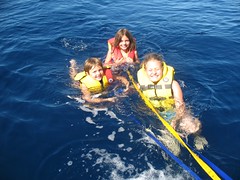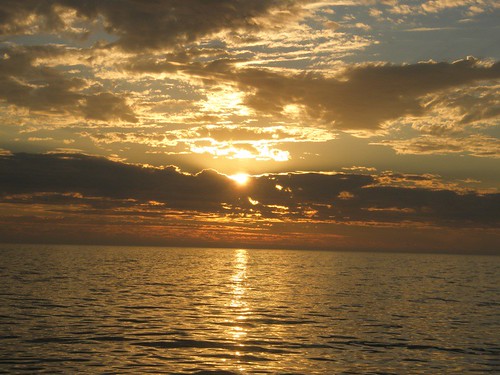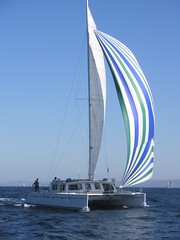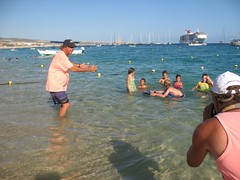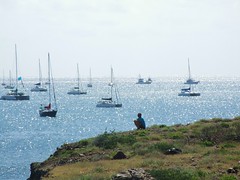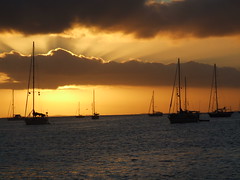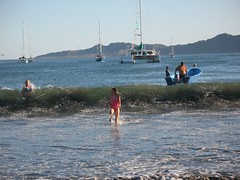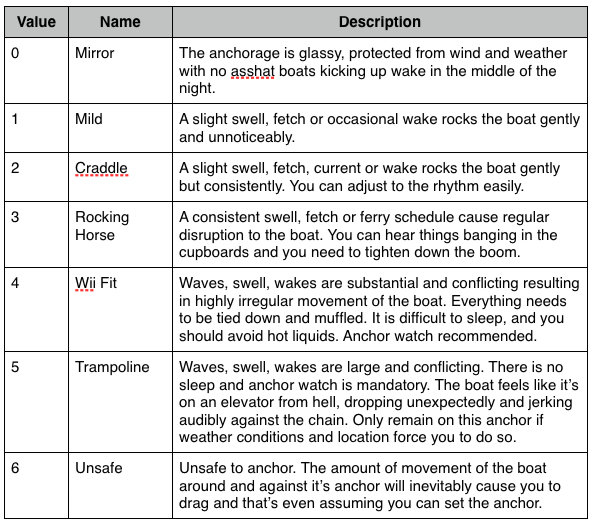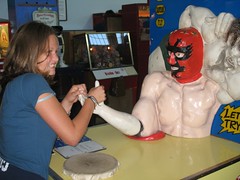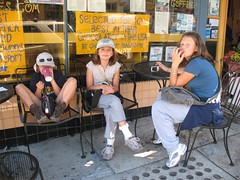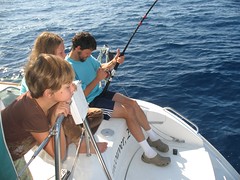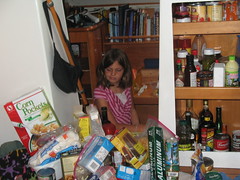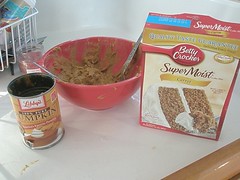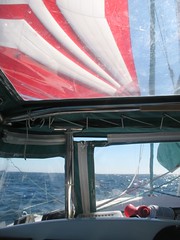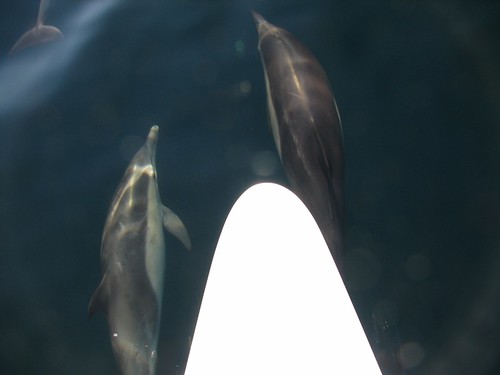Two Navigation Stations
My father in law brought along his laptop complete with Nobeltec software, GPS receiver, and charts. He set this up on our salon navigation table. Prior to the arrival of this laptop, the navigation table was a complete misnomer. It’s most significant responsibility was holding DrC’s beer while he practiced guitar. With a computer on the nav table and another at the helm, off duty crew could routinely check our position with bugging the guy at the wheel. I’m going to make this SOP going forward instead of just a happy accident.
Red Lights
Many boats come equipped with a red light for the navigation station. Until you overnight, you don’t understand how important these are. Red lights do not ruin your night vision. White lights blind you for a really surprising amount of time... in fact far longer than it takes a tanker to ride up your transom and run you down. Make sure your existing red lighting gear is functional. Also, consider getting a sheet of red gel from a stage lighting store. Make covers for items like your iPod or secondary laptops so that you can reduce their glare at night. You can also make a cover for flashlights used in the cabin.
Warm Clothes
The boat is colder on the ocean at night. No matter what temperatures you are used to, if you take out your boat at night it is considerably cooler. We see most cruisers living in their foulies during a passage, particularly while they are at the helm. In addition to your foulies, consider a warm hat that covers the ears, wool socks and a decent pair of warm shoes or boats. We also used a lap blanket. Now keep in mind, if you helm on Don Quixote, you are inside a completely enclosed bimini. I can only imagine how cold it would be to do this in a more open cockpit. Dress warmly.
Know Your Lights
When you are out on the water, the lights make absolutely no sense whatsoever. This is a non-trivial problem. Parsing out the message sent by a white-green-white combination can be the difference between getting run over by a tanker and running over a fishing boat with its gear out. I thought I knew the lights. I took the American Sailing Association course, studied the book and reference cards, and memorized all the little light thingies. Then we got out in the big water, and absolutely nothing looked like the cards. For one thing, the lights do not sit idly while you puzzle out their message. They bob like corks, move from left to right, and sometimes they simply change from red to green or white. This -means- something, but figuring it out on the fly is hard. I think an intrepid cruiser-programmer should take about two hundred videos of lights on open water and build an interactive online quiz. Do the best you can by boning up on the subject and make a game of it with the more experienced crew before they go to bed so you don’t panic after they’ve gone to sleep.
***
More things you do not need to take on a passage: television, bathing suit, hair care products, and puzzles.

